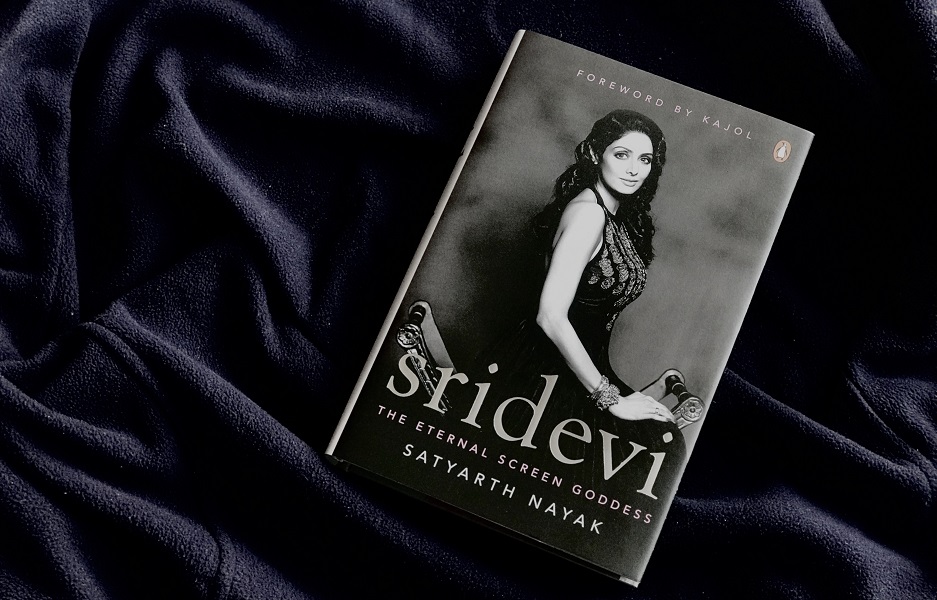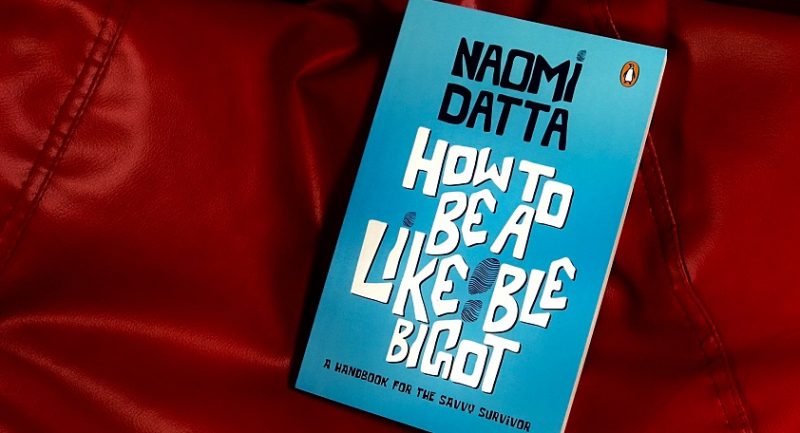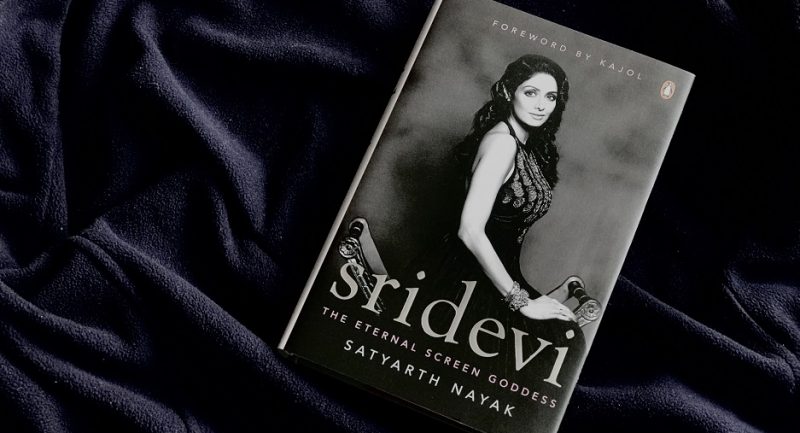
Hailed as the first pan-Indian female superstar in an era which literally offered actresses crumbs, Sridevi tamed Hindi cinema like no other.
Sridevi-The Eternal Screen Goddess by Satyarth Nayak is the superstar’s journey from child star to one of our greatest movie luminaries who forever changed the narrative of Indian cinema.
Get a glimpse into the story of her life from the excerpt below:
The theatre had come alive. Halfway through the film—during the intermission—Tamil chartbusters were blaring from the speakers. A four-year-old girl had got up from her seat and was dancing in the aisle. Her face cherubic, eyes luminous and feet frolicking. Her parents gaped as the audience cheered her on. Oblivious to all this, the girl danced with abandon, casting a shadow on the blank cinema screen. Sharing this childhood memory with me (author) in our only meeting in 2012 at the Delhi premiere of English Vinglish, Sridevi had said, ‘I danced and danced until someone pulled me back.’
And yet, in a 1985 interview with Cine Blitz, Sridevi also described her younger self in these words: ‘I was a very shy and lonely child. Ihated crowds. The minute I saw more than three or four people in the room, I would run and hide behind my mother’s pallu.’
Reconciling these two childhood versions of Sridevi, so seemingly incompatible with each other, is difficult, but perhaps it was this fascinating dichotomy that spun the aura and mystique around her. People close to the actress vouch that she was not one or the other; she was both. Both the personas merging into one. That girl withdrawing behind her mother’s pallu could also streak through the silver screen like a bolt of lightning.
Sridevi was unquestionably to the movies born. The episode at the theatre ticked all the boxes for a star in the making—someone who is naturally drawn to the spotlight, and who can easily insulate oneself from the reality around, instead finding sanctuary in a world of her own. A being so truly dazzling that all those who watched were sucked into the fantasy she created on screen.
Sridevi was born on 13 August 1963. Her parents K. Ayyappan and Rajeshwari were residents of Meenampatti, Sivakasi, Tamil Nadu. Her younger sister Srilatha and stepbrother Satish, from Ayyappan’s first marriage, completed her family. Director Pankuj Parashar reveals how the actress got her name: ‘She once told me that when she was born, there was a bright red mark on her forehead, like a tika. Everyone started saying that a devi had taken birth and they named her Ayyappan Sridevi.
…Today, it is all the characters she has left behind who will keep flashing her magic. Some of us would be content with just those cinematic versions of her. But some of us might look beyond those avatars to seek out the real Sridevi, try to locate her in that twitch of the lips or that flutter of the eyes, in that laughter that never ended or that teardrop that never descended, in her every cadence and every silence, in her infinitesimal moments scattered throughout celluloid. We shall wonder whether the actress, who kept playing ‘others’ onscreen, ever got to be who she truly was. And having spent a lifetime creating ‘Sridevi’ for others, if the real person lived somewhere in her own fantasy.
In an interview with Cine Blitz in 1994, when asked what creature she would wish to be, Sridevi had replied: ‘A bird. I would love to fly free.’ Perhaps it is this unspoken longing in her eyes which a fan like Harish Iyer recognized that makes him say: ‘Many of her admirers keep tweeting “RIP—Return If Possible.” It is not easy for me to say this but I don’t want Sridevi to come back. I hope she is happy and at peace wherever she is. I just want her to rest.’
We can only thank her for those countless moments when she touched our very core with her art, we can only be awed by her immense legacy that generations will continue to discover, we can only be grateful to her for being that life on-screen who inspired lives everywhere. And we can only forever stare at the irony of her last words on celluloid. When walking away from all of us in that scene in Zero, Sridevi giggles and says: ‘Next time!’
Such was Sridevi’s megastardom that she emerged as the ‘hero’ at the box office, towering above her male co-actors. Challenging patriarchy in Bollywood like no other, she not only exalted the status of the Hindi film heroine but also empowered a whole generation of audiences.Find out more about her in Sridevi: The Eternal Screen Goddess.









